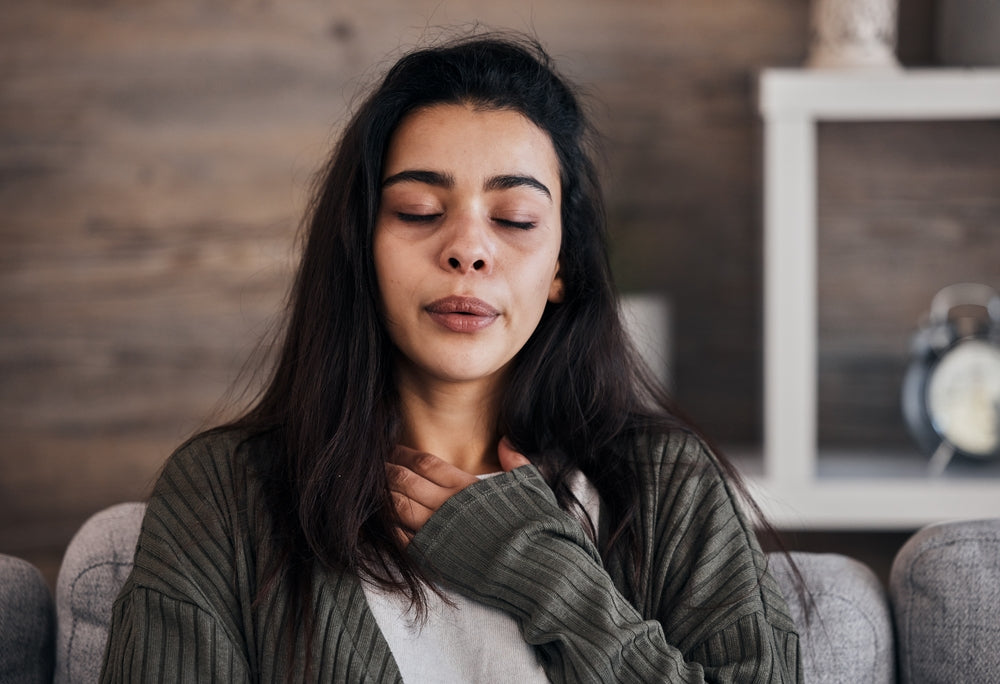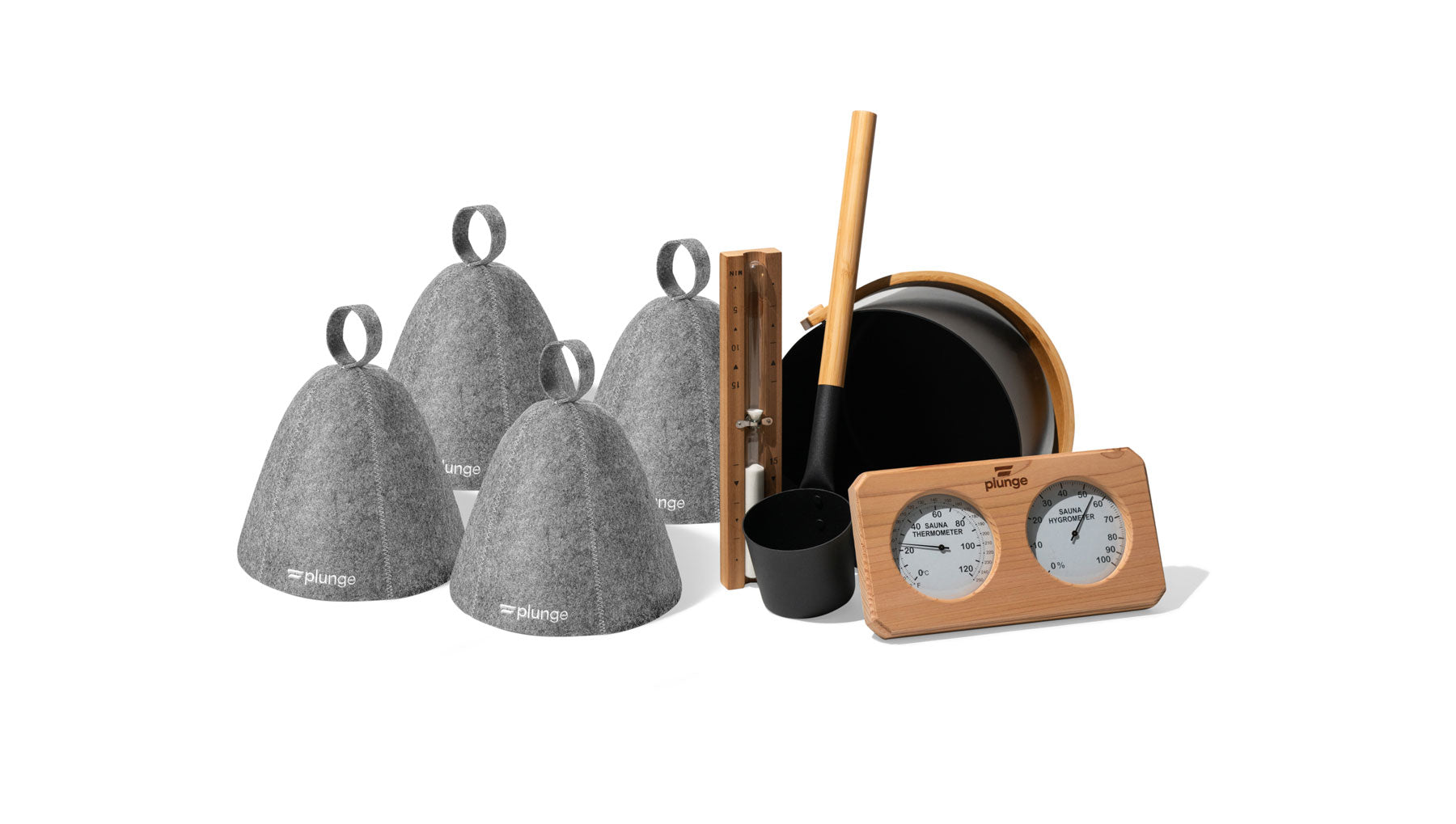
What is Chronic Anxiety? Symptoms & Treatments
Does your anxiety feel like a constant knot in your stomach or a never-ending racing heart? You might have chronic anxiety. But you're not alone. An astounding 20% of U.S. adults have anxiety that disrupts their daily lives, and it’s estimated that about 31% of U.S. adults will experience at least one type of anxiety disorder at some point in their lives. The numbers are daunting, but here's the good news: Millions of people have found ways to manage their chronic anxiety!
This guide will help you better understand exactly what chronic anxiety is, how it differs from chronic stress, and the toll it can take on your physical health. We are also including ways to treat your chronic anxiety, from lifestyle changes to where to find more professional treatment or community support.
What is Chronic Anxiety?
Chronic anxiety is a form of anxiety that persists for a long time — months or even years. While everyone experiences anxiety from time to time, chronic anxiety is far more intense and impacts daily life and, over time, physical health. Those with chronic anxiety excessively and persistently worry, usually about things such as school, work, money, or relationships. It’s typically a symptom of general anxiety disorder (GAD), but there are several other types of anxiety disorders, each with unique triggers and symptoms:
- General Anxiety Disorder (GAD)
- Panic Disorder
- Social Anxiety Disorder (SAD)
- Specific Phobia
- Obsessive-Compulsive Disorder (OCD)
- Post-Traumatic Stress Disorder (PTSD)
Chronic Stress vs. Anxiety: What’s the Difference?
While stress and anxiety are closely related, there are a few key differences between the two concerning their causes and symptoms. The biggest is that chronic stress is ongoing pressure from identifiable external factors, while chronic anxiety is constant worry without a clear reason why. Additionally, stress usually happens because of specific influences, but anxiety can stick around without any obvious reasons.
Whether you’re stressed or anxious, your body releases hormones like cortisol as it prepares to “fight-or-flight.” Over time, this can become chronic, leading to an imbalance of stress hormones and causing further physical and mental health problems.
Chronic Anxiety Symptoms
Though these can overlap with chronic stress, below are several common symptoms of chronic anxiety, which can vary in severity and may change over time:
- Persistent worrying about various aspects of life
- Difficulty controlling or stopping worrying
- Restlessness or feeling on edge
- Fatigue or irritability
- Muscle tension
- Difficulty concentrating
- Sleep disturbances, including difficulty falling or staying, asleep
Note: If you’re experiencing depression, anxiety, or other mental health struggles, please consider seeking help from a professional. Information in this post is for educational purposes and should not be considered medical advice.
How Does Anxiety Affect the Body?
Chronic anxiety doesn't just affect your mind daily; it can have a horrible long-term effect on your body. When anxiety becomes chronic, it triggers a constant state of high alert, similar to the fight-or-flight response. This response is designed to help individuals deal with perceived threats by increasing alertness, heart rate, and blood pressure. When anxiety becomes chronic or excessive, it can lead to various physical symptoms and health problems, especially related to gastrointestinal and cardiovascular functions.
Cardiovascular Problems
Chronic anxiety puts a strain on your cardiovascular system which can have long-term consequences. When the stress hormones (such as adrenaline) are released, it causes your heart rate and blood pressure to rise as it pumps more blood and oxygen to deal with the perceived threat.
When these symptoms become persistent, they can increase the risk of cardiovascular problems such as hypertension, heart disease, and stroke over time. A constant strain on the cardiovascular system from prolonged stress and anxiety can also increase the chance of developing atherosclerosis (hardening of the arteries), among other cardiovascular conditions.
Gastrointestinal Issues
Chronic anxiety can lead to gastrointestinal (GI) issues such as stomachaches, nausea, or irritable bowel syndrome (IBS). This is because the stress response triggered by anxiety affects digestion and bowel movements, causing discomfort and disruptions in gastrointestinal functioning.
Prolonged activation of the stress response system may also contribute to inflammation in the gastrointestinal tract, worsening symptoms. On top of that, chronic anxiety can disrupt the delicate balance of good and bad bacteria in your gut, further contributing to GI problems and potentially weakening your immune system.
How to Treat Chronic Stress and Anxiety
Frequently anxiety and stress can occur together. Chronic stress can worsen anxiety symptoms, with chronic anxiety making it harder to cope with the stress – it’s a horrible cycle. While there is no one-size-fits-all treatment for chronic anxiety, there are several options available, including therapy and lifestyle changes.
Treating Anxiety Through Lifestyle Changes
Lifestyle changes can be a powerful tool for managing anxiety symptoms. Here are a few additional changes to consider making:
- Try cold water therapies such as cold showers and ice baths, which have been found to help anxiety by triggering the body's stress response. They help in releasing hormones like adrenaline and cortisol, as well as stimulating the release of mood-enhancing endorphins, reducing anxiety levels over time.
- Regular exercise, at least 30 minutes four to five times a week, can help relieve tension, improve mood, and promote better sleep, all factors that contribute to managing chronic anxiety.
- Eat a healthier diet that’s rich in fruits, vegetables, whole grains, and lean protein, and limit unhealthy processed foods, sugary drinks, and unhealthy fats. Research has found a link between healthy eating patterns and reduced anxiety symptoms.
- Try to reduce or eliminate caffeine consumption to see if it helps manage your anxiety, as it can worsen symptoms by causing jitters, restlessness, and difficulty sleeping.
Treating Anxiety with the Help of a Professional
If lifestyle changes alone aren't enough to manage your anxiety, seeking professional help can be extremely beneficial. Here are some chronic anxiety treatments to explore along with the assistance of a professional:
- Cognitive-behavioral therapy (CBT) is a common type of psychotherapy that focuses on identifying and then challenging negative patterns and behaviors associated with anxiety.
- Mindfulness therapy methods train you to focus on the present moment without judgment by cultivating awareness and acceptance of your thoughts and feelings.
- Support groups are great if the idea of individual therapy turns you off. These can create a sense of community and present you with opportunities to share experiences and coping strategies with others who have similar struggles.
- Biofeedback is a technique that utilizes technology for real-time feedback on your body's responses to anxiety so you can have better control over your physical symptoms of anxiety.
Beat Anxiety with At-Home Cold Water Therapy!
When left untreated, chronic anxiety can significantly impact our daily lives and physical health. This is why it’s essential for individuals experiencing these symptoms to make changes in their lifestyle or to seek help from mental health professionals.
At Plunge, we’ve seen the mental health benefits of ice baths firsthand! This is why we created the revolutionary Cold Plunge tub, which is great for beginners and enthusiasts alike. Explore our complete line of state-of-the-art cold plunge tubs here, all are available with flexible financing options and plans to work for you.
We’ve also teamed up with TrueMed to allow you to use your HSA or FSA for your Plunge purchase. Head to this page to learn more about how you can put your pre-tax dollars to work and unlock up to 40% in savings!
Medical Disclaimer: The information contained in this post is for informational and educational purposes only. It is not intended to provide medical advice or to take the place of such advice or treatment from a personal physician. All readers/viewers of this content are advised to consult their doctors or qualified health professionals regarding specific health questions or before embarking on any new health or wellness routine, including saunas and cold plunging. Neither the author(s) nor the publisher of this content take responsibility for possible health consequences of any person or persons reading or following the information in this educational content. All viewers of this content, especially those taking prescription or over-the-counter medications, should consult their physicians before beginning any cold plunging routine or other health or wellness program.























